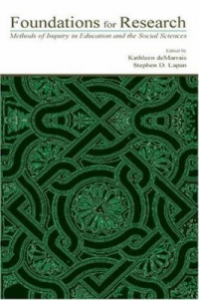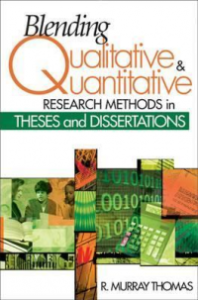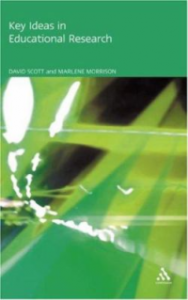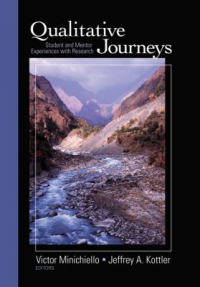The Ontario Institute for Studies in Education is Canada’s largest and most research-intensive faculty of education. To assist students with their diverse research projects, the OISE Library is dedicating a display to reference sources for research. Whether you are looking for material on foundations for research, research ethics, or blending qualitative and quantitative research methods, this display provides many excellent examples and approaches to research methods.
 Foundations for Research edited by Kathleen deMarrais and Stephen D. Lapan
Foundations for Research edited by Kathleen deMarrais and Stephen D. Lapan
Foundations for Research Methods of Inquiry in Education and the Social Sciences was designed by deMarrais and Lapan to provide students and new researchers an overview of research methodologies and understandings for these approaches. This book focuses on the following topics: research ethics, the intertwined relationship of theory and research design, systematic examination of ways to design and implement high-quality research, specific methods for implementing research, and pedagogical strategies. Students may find the last chapter of the book to be helpful as it provides a discussion of the methods of data collection, interpretation, and representation based on concepts and issues within specific research methodology.
Research Methods for Education by Peter Newby
This student-friendly book guides students through research methods with exercises, examples, and comparative international material. Unique to this book, Newby has written a guide for people who may be new to research and are not confident with numbers. This textbook walks students through understanding the context for their research, understanding the research process, and putting their research design together. Another key feature of this book is that it provides a mixed method approach, which simply does not prioritize quantitative or qualitative methods. Newby designed the text to help students produce good, valid and valuable research by including many international examples and cases specifically from education.
 Blending Qualitative and Quantitative Research Methods in Theses and Dissertations by R. Murray Thomas
Blending Qualitative and Quantitative Research Methods in Theses and Dissertations by R. Murray Thomas
Thomas has written a volume designed as a guide for graduate students who wish to understand the characteristics of a wide variety of qualitative and quantitative research methods. Thomas provides his own insight for conditions under which a particular research method is most appropriate. The text also includes twenty different ways that qualitative and quantitative methods can be blended in writing thesis or dissertation proposals. This book presents an excellent overview of qualitative and quantitative research methods.
Key Ideas in Educational Research by David Scott and Marlene Morrison
Key Ideas in Educational Research is a comprehensive guide consisting of 120 concise essays and major ideas in the field of educational research methodology. These ideas range from positivism, ethnomethodology, and postmodernism, to philosophical concepts such as realism and induction. The book also looks into educational research strategies such as case studies, experiments, surveys, and ethnography. In addition, Scott and Morrison also examine educational research instruments such as questionnaires, interviews, and observations. The book is intended to be a resource for readers and researchers interested in understanding research methodology in the field of education.
 Qualitative Journeys edited by Victor Minichello and Jeffrey A. Kottler
Qualitative Journeys edited by Victor Minichello and Jeffrey A. Kottler
Qualitative Journeys: Student and Mentor Experiences With Research is comprised of stories from students’ experiences conducting qualitative research projects. These stories reveal the obstacles, joys, and discoveries that take place during a qualitative research journey. The authors believe that by studying examples of research done by students, readers will learn real-life experiences of other students. The textbook unpacks some of the central themes derived from all qualitative journeys, including concepts, locating and understanding voices in narrative inquiry, radical reflexivity, and more.
For more resources, please visit the Lobby Display, located on the OISE ground floor lobby.
